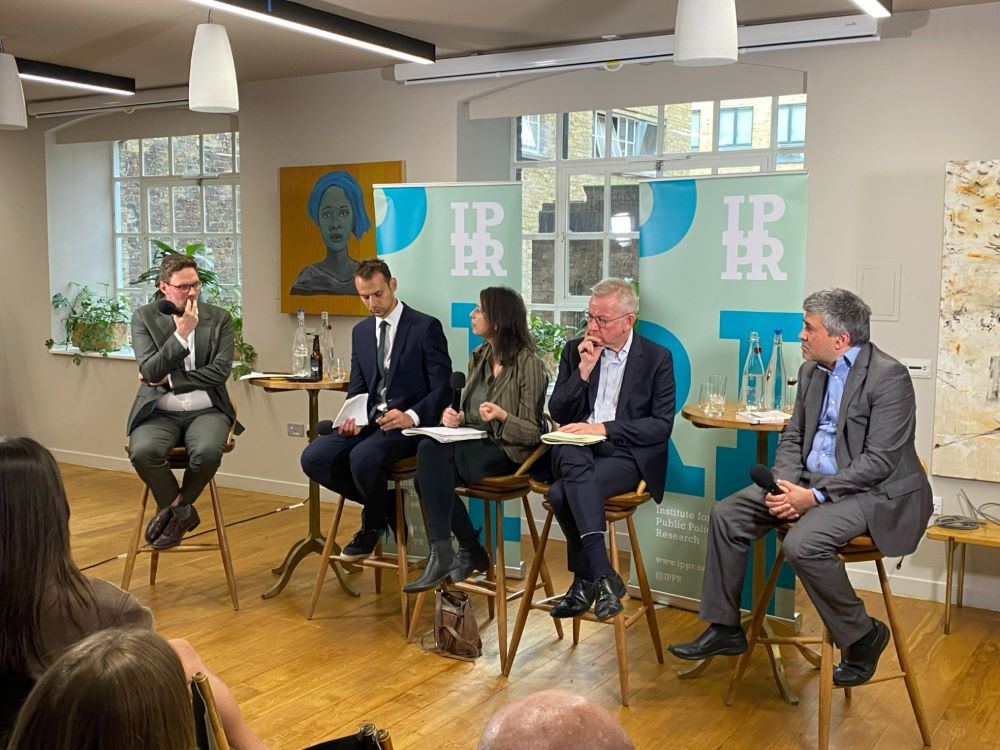Michael Gove Says Keir Starmer Could Go "Further" Than Tories Ever Did On Justice Reform
Michael Gove offered his support to the Conservative general election campaign (Alamy)
3 min read
Former Conservative secretary of state Michael Gove has said that Prime Minister Keir Starmer might be able to go "further than we ever did" on prison and justice reform.
Gove spoke on a panel hosted by the Institute for Public Policy Research think tank on Wednesday evening alongside Labour MP and former Labour Together director Josh Simons, Professor of Social Policy Jane Gingrich, and British Future director Sunder Katwala.
The panellists discussed what a comprehensive program for national renewal should look like in this Parliament and how an ‘insurgent’ government might be able to transform people’s lives and restore public trust in politics and institutions.
Gove, who stood down ahead of this year's General Election after being an MP for nearly 20 years, said that many people would have found it "difficult" to see the first wave of inmates being released from prisons across the country on Tuesday in an effort to ease serious overcrowding – including some who were convicted of violence offences.
Despite having been justice secretary himself between 2015 and 2016, Gove said he felt Starmer's new Labour Government might be better placed than the Conservatives to handle the crisis in prisons and the justice system.
"We can have a debate about to what extent the Conservatives should have addressed this earlier, but I think that this is an area of urgent and necessary reform," Gove said.
"And that in some cases, having someone who is steeped in the law and respected because of the way in which [Starmer] holds it in respect enables Labour to go further than we ever did."
He described Starmer as having "obviously succeeded in and been an exemplary product of the legal system", and therefore "naturally feels a kinship with it".
Gove insisted that "each individual chain" in the criminal justice system, including the police, prosecutors, judges, and prisons would require "radical reform", and would need someone leading it who was able to overcome the "vested interests" of those involved.
As well as an overcrowded prison estate and large court backlog, a new investigation by The House has revealed that the probation service is another component of the justice system facing severe pressure as ministers try to deliver "national renewal". Insiders say it is "in meltdown", with services nationwide facing vacancy rates of over 50 per cent and some staff doing 200 per cent of their normal caseload as a result.
 Josh Simons, Jane Gingrich, Michael Gove, and Sunder Katwala spoke on an IPPR panel on Wednesday (Alamy)
Josh Simons, Jane Gingrich, Michael Gove, and Sunder Katwala spoke on an IPPR panel on Wednesday (Alamy)
Gove, who held multiple senior positions in Cabinet, also praised former Labour prime ministers Tony Blair and Gordon Brown for their political abilities.
"On migration, it was the case in the run up to and immediately after the 2005 election, when Michael Howard [former Tory leader] foregrounded the issue, that Tony Blair responded in a way that genuinely helped to, at that time, calm people's concerns about the issue, although obviously it rose in salience later," Gove said.
"And he did so by emphasising the importance of control in order to win back consent for managed migration."
Gove said that he admired Brown's speechmaking and his ability to make a sustained argument and then popularise it.
"He was governed by speech making, and that might sound like a bad thing, but in fact, it was a good thing because of the way in which he operated," Gove said.
"The one thing about Gordon Brown is nobody could say that he was anything other than absolutely devoted to successful policy implementation, but he was also capable of soaring rhetoric.
"You see that in what I think is one of the best speeches ever made by a British politician in the last 25 years, which is a speech he gave during the Scottish referendum in Glasgow."
